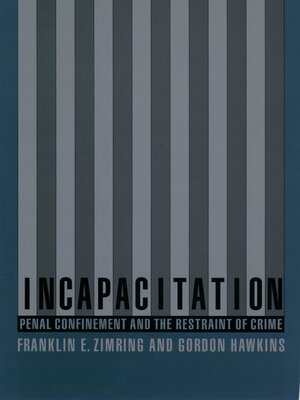Incapacitation
ebook ∣ Penal Confinement and the Restraint of Crime · Studies in Crime and Public Policy
By Franklin Zimring

Sign up to save your library
With an OverDrive account, you can save your favorite libraries for at-a-glance information about availability. Find out more about OverDrive accounts.
Find this title in Libby, the library reading app by OverDrive.



Search for a digital library with this title
Title found at these libraries:
| Library Name | Distance |
|---|---|
| Loading... |
The one, sure way that imprisonment prevents crime is by restraining offenders from committing crimes while they are locked up. Called "incapacitation" by experts in criminology, this effect has become the dominant justification for imprisonment in the United States, where well over a million persons are currently in jails and prisons and public figures who want to appear tough on crime periodically urge that we throw away the key. How useful is the modern prison in restraining crime, and at what cost? How much do we really know about incapacitation and its effectiveness? This book is the first comprehensive assessment of incapacitation. Zimring and Hawkins show the increasing reliance on restraint to justify imprisonment, analyze the existing theories on incapacitation's effects, assess the current empirical research, report a new study, and explore the links between what is known about incapacitation and what it tells us about our criminal justice policy. An insightful evaluation of a pressing policy issue, Incapacitation is a vital contribution to the current debates on our criminal justice system.







